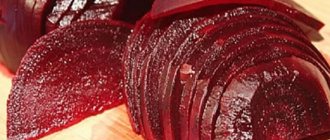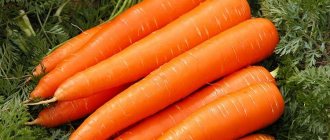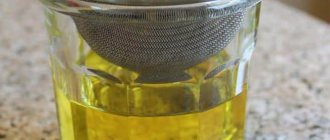A considerable number of people suffer from gastritis nowadays. This is facilitated by the pace of life: snacks on the go, stress, fast food in snack bars. Alcohol and spicy foods also help to get inflammation of the mucous membranes.
In case of exacerbation of the disease, only complex therapy under the supervision of a specialist will help. But during remission, following a proper diet has worked well. Tea for gastritis will relieve the inflammatory process in the stomach and, with the right choice of the type of drink, regulate acidity.
Kombucha, anise, fireweed, green and many other drinks are not only rich in vitamins, have a pleasant taste, improve mood, but also restore the gastric mucosa, thereby reducing pain.
But you need to know that for any type of gastritis, hot teas and food should not be consumed. And in the acute stage, only herbal teas are indicated for use.
Can I have black tea?
Many people are interested in whether it is possible to drink the usual black tea with this disease. In principle, doctors do not prohibit it, but it is important to remember that this drink should be consumed in small quantities.
When choosing a variety, focus on the quality of the product. Patients with high stomach acidity should be careful, because tea increases the formation of hydrochloric acid. To avoid this effect, milk is added to tea .
A little secret will help you prepare tea with milk correctly: when the tea leaves have steeped and cooled, you need to add warm boiled milk to it.
It is not recommended to drink it on an empty stomach! This will increase heartburn, pain and may cause belching. If the secretion of acid in the stomach is reduced, then black tea does not pose a danger to the mucous membrane. One way or another, you should not abuse this drink.
Tea for high stomach acidity
Black tea is not recommended for gastritis with high acidity. It is this that contributes to an even greater increase in acidity (especially for steeply brewed drinks). If you absolutely cannot do without it, then it is better to consume it with warm milk, then the acidity will be normal, and the mucous membranes of the gastrointestinal tract will not be damaged. As for green tea, it has no contraindications for use with high acidity.
For gastritis with high acidity, it is better to drink herbal tea without chamomile. The most suitable in this case are fennel, flax, linden, calamus, mint, and licorice. This herbal tea simultaneously relieves inflammation and soothes mucous tissues.
Green tea
For gastritis, as well as peptic ulcers, heartburn or reflux, it is still better to replace black tea with green tea. The process of preparing it is slightly different from the usual brewing method.
You will need 50 grams of dried tea leaves and a container that retains heat well. In this case, the water temperature should not reach 100 degrees, otherwise the tea leaves will release harmful components.
After pouring hot water, the drink needs to brew for half an hour. You can use a thermos for cooking; it will keep the temperature perfectly. Drink one tablespoon of green tea 20-30 minutes before eating.
Too strong tea contributes to the exacerbation of the disease, so monitor its concentration. If the acidity of the stomach is low, you can add lemon and a spoonful of honey to the drink. As for green tea, brewed a second and third time, it is not only no worse, but even more beneficial for people with gastritis.
This drink contains components that have a positive effect on the functioning of the gastrointestinal tract as a whole. Helps remove waste and toxins from the body, which generally has a good effect on the body. In addition to alleviating the symptoms of gastritis, tea enhances the regeneration of the mucous membrane, accelerating recovery.
If acidity is reduced
If we are talking about the hypoacid type of the disease, then among other signs the patient has low acidity of gastric juice. The diet in this case corresponds to the general nutritional requirements for gastritis and aims at mechanical, chemical and temperature sparing of the mucous membrane. Exclude from the diet:
- hard food;
- too hot or, conversely, cold. Temperature requirements apply equally to food and beverages;
- foods that are difficult to digest (mushrooms, legumes);
- alcohol.
Meals should occur 5-6 times a day , while it is allowed to drink teas and herbal infusions that help improve gastrointestinal motility, stimulating the production of hydrochloric acid and food enzymes.
Green and black tea are a source of caffeine, and therefore can stimulate secretory function.
However, unlike coffee, it contains a large number of useful microelements that ensure rapid restoration of the gastric mucosa. To avoid digestive problems, it is optimal to dilute the drink with milk, monitor the temperature of the tea, and drink a drink that is not too hot. Doctors also recommend adding rose hips, raspberries, currants, and wild apples before brewing.
IMPORTANT: You should not overuse tea. Even without direct contraindications, you can drink no more than 4-5 cups a day . As an alternative, jelly for gastritis, juice, compote, and fermented milk drinks are suitable.
Anise tea
The benefit of this tea lies in its anti-inflammatory, antibacterial, healing and disinfecting abilities. It also normalizes digestion, eliminates intestinal pain and even suppresses the growth of Helicobacter pylori. It is this bacterium that causes gastritis by multiplying in the mucous membrane of the stomach walls.
This drink is easy to prepare: five grams of anise seeds are poured into a thermos and, after adding boiling water, it is infused for 2-3 hours. It is recommended to take the infusion before each meal (half an hour before), but at least 5 times.
Drink half a glass of anise tea, and the duration of treatment depends on the severity of the symptoms.
Anise is also known for relieving stomach spasms, therefore it is recommended by doctors for the neurogenic nature of gastritis. Thus, it works in two directions at once.
Anise tea for gastritis
Many people know that gastritis often occurs during stressful situations.
It happens that increased tension can provoke a stomach spasm, which becomes an impetus for the inflammatory process.
Anise acts in 2 directions, which makes it possible to prevent the development of the disease in time and provide protection against relapses.
Anise tea has an antispasmodic effect on the stomach and also blocks the growth and reproduction of the bacterium Helicobacter pylori in the stomach.
Preparing it is also not difficult. You need to purchase a package of anise seeds at the pharmacy.
Place 5 g of raw materials (about a teaspoon) in a thermos and add a glass of boiling water.
The drink is infused for 2-3 hours at a constant temperature.
The resulting infusion is taken ½ glass before meals. You can drink it after meals, but the effectiveness will be reduced.
Important: patients with gastritis are recommended to eat split meals; they need to eat often, but in small portions, before which they must drink anise tea.
Chamomile tea
Pharmaceutical chamomile is valuable because it contains monoterpene oils, chamazulene and prochamazulene, vitamins and components that have a healing, disinfecting and soothing effect on the stomach.
Being a natural antibiotic, the plant suppresses the activity of Helicobacter. The astringent effect promotes rapid restoration of the mucous membrane. Also, chamomile decoction and infusion relieve spasms and have antacid properties, which is important if the patient has belching and reflux.
The ability of the drink to remove harmful substances from the body is also important, because the patient’s condition also depends on his health as a whole..
Pharmaceutical chamomile is one of those remedies whose use is not prohibited during exacerbation of gastritis. In such a situation, it helps relieve inflammation in the gastric mucosa and eliminate pain.
Chamomile tea is very easy to make. A glass of boiling water is poured into a ceramic teapot, a teaspoon of dried flowers is added there, and after 10-15 minutes the infusion can be drunk in small sips. You can add a spoonful of honey to this tea, it will help relieve inflammation.
People suffering from low acidity and pregnant women are not advised to drink chamomile tea. Long-term use can cause constipation, so you should drink in courses and take breaks between them.
Herb tea
An excellent substitute for black tea is a drink made from medicinal herbs. Many of these teas have a pleasant aroma and interesting taste, but the main thing is that they are healthy.
Try different teas and choose the ones you like, because the body often tells you what it needs, know how to listen to it. There are quite a lot of medicinal components that help in the fight against the disease, and almost all of them can be combined with each other, obtaining the desired taste and healing effect.
When choosing herbs, consult a gastroenterologist. He will tell you which of them have antibacterial, restorative and anti-inflammatory effects. It could be chamomile, St. John's wort, plantain and many others.
Mint tea
Tea made from mint leaves not only reduces stomach pain, but also relieves irritable bowel syndrome and various spasms in the gastrointestinal tract. Peppermint is used throughout the world to relieve stomach ailments.
For gastritis, you can prepare mint leaves yourself by simply drying them and putting them in a shaded place, or buy ready-made mint tea. One teaspoon of dried leaves is brewed in a glass of boiling water, and after ten minutes the drink can be consumed. Drink it as needed.
Tea for gastritis - black, green, chamomile, mint, monastery - Pain in the Stomach
Some types of tea are not only possible, but also beneficial to drink in combination with complex therapy, including the recommended diet and medication.
However, in order to avoid negative consequences, before use it is necessary to familiarize yourself with the properties and contraindications of a particular drink.
Combined herbal teas
The benefit of herbal teas is to enhance the healing effect, anti-inflammatory and antimicrobial effects, but you need to remember that the effect of such drinks can be quite strong, so consultation with a specialist before use is advisable!
When making multi-component tea, do not overdo it with concentration, take into account the properties of each herb, thereby preventing the danger of side effects and allergic reactions.
Here are the options for popular herbal teas:
- This recipe is suitable for people with high acidity. The drink has an enveloping and anti-inflammatory effect. For preparation you will need in equal parts: calamus root, mint leaves, licorice root, fennel fruits, flax seed and linden flowers. 15 grams of this mixture are poured into a glass of hot water for an hour and a half. Then you need to bring the infusion to a boil and strain. Drink the collection after meals.
- A good recipe for reducing the number of Helicobacter bacteria and at the same time reducing the production of hydrochloric acid. Also mixed in equal proportions: St. John's wort, chamomile, yarrow and celandine. Add a glass of boiled water to a tablespoon of the mixture. Leave for an hour and a half and take after meals.
- For people who suffer from insufficient acid production, the following recipe is suitable: 10 grams of rosehip, peony and calamus roots are mixed with 20 grams of plantain leaves and aureus and 5 grams of oregano leaves. Brew a tablespoon of the collection in a glass of boiled water and take it instead of regular tea after meals.
What herbs to drink for gastritis of the stomach
Folk recipes contain recommendations on how to use herbs for gastritis and stomach ulcers. The presented list is the most common plants that help both individually and as part of collections. However, it is worth remembering that there are different types of gastritis, different acidity, etc. And herbal treatment must be carried out carefully, keeping in mind the cumulative effects, the recommendations of a specialist, and only after undergoing an examination.
So, useful herbs for gastritis:
- Celandine.
- Dill.
- Oats.
- Sagebrush.
- Plantain.
- Yarrow.
- Celery.
- Blooming Sally.
- Aloe.
- Sea buckthorn.
- Fenugreek.
Not all of them are herbs. But all of these are natural remedies that can bring relief from gastritis. They are used for prevention, during a course of drug treatment. Each has its own characteristics.
Treatment of gastritis with low acidity with herbs: celandine
The most common use of celandine is cauterization of warts. But this is far from its only function. Poisonous juice, in small quantities, can be beneficial for the gastrointestinal tract. Taking it in its pure form means burning your mucous membranes. Therefore, the plant, rich in vitamins, zinc, and selenium, is carefully processed.
In particular, drops of juice in a small spoon are mixed with honey and taken before each meal. And not immediately before use, but 30 minutes before. The course of admission is a week. Then there is a week break, and again the same course.
Contraindications for use: pregnancy, age under 3 years, neurological diseases.
When taken, celandine can:
- Anesthetize, reduce discomfort from the course of the disease.
- Reduce inflammation of the mucous membrane, as it will be enveloped, which means it will be protected.
- Slow down the transition of gastritis to the chronic stage.
- Heal minor erosions (wounds) on the surface of the mucosa. In fact, he cauterizes them.
- Prevent the development of tumors.
Celandine has a high content of organic substances. Like all herbs for gastritis with low acidity, it has an analgesic effect, promotes wound healing, and eliminates the process of inflammation. Regular use of the decoction stabilizes the natural production of gastric juice and restores the walls of the gastrointestinal tract.
For the infusion you will need leaves and flowers of celandine, dry or fresh. A small handful is poured with 200 ml of boiling water and left for at least an hour. Afterwards, strain the resulting broth and divide into 3 equal parts. Drink this small amount half an hour before meals.
St. John's wort - for high acidity
This herb:
- improves intestinal microflora;
- reduces the number of pathogenic microbes and fungi;
- helps improve appetite;
- has a healing effect on the affected gastric mucosa;
- has a positive effect on the digestive process as a whole;
- eliminates the effects of taking antibiotics;
Herbal decoctions for gastritis with St. John's wort
It is most convenient to brew fresh or dry herbs in a thermos. For 1 tablespoon there is a glass (200 ml) of boiling water. The most important thing is to let the leaves and flowers brew for 2-3 hours so that they release their beneficial substances. After this, the infusion is ready for use - 50 ml each. half an hour before each meal. No more than 3 times a day.
You can do without insisting. A decoction of St. John's wort is also effective. For 2 tablespoons of the substance there is also a glass of water. Boiled water is poured into a container with herbs, then simmered over low heat for 15 minutes. Also taken three times a day, half an hour before meals.
If you have enough time, prepare a vodka tincture. St. John's wort is diluted with vodka in a ratio of 1 to 1 (100 g each), and left for at least a week. Take in courses, a week, 30 drops, 3 times a day, after meals. The herb St. John's wort for gastritis can significantly reduce pain, provided that other medications are taken.
Herbs for treating gastritis: dill
This plant is the easiest to get. It will help:
- significantly reduce flatulence;
- fight constipation;
- prevent further development of ulcers on the gastric mucosa;
- maintain intestinal health at the desired level;
- improve appetite.
It is worth noting that taking dill has virtually no contraindications (it is given even to infants from the first days of life).
The infusion can be drunk instead of tea before or after meals. To do this, pour boiling water over a spoonful of seeds, dry or fresh leaves, leave for half an hour or an hour, and drink third glasses.
Oats
It is worth noting that for medicinal purposes, whole and not ground oat grains should be used. Oat infusions:
- Relieves inflammation;
- Protects mucous membranes;
- Prevents the formation of ulcers;
- Reduces pain;
- Improves general digestive processes;
- Reduces the symptoms of heartburn.
Porridge is used to cook porridge and make jelly. They envelop the inner surface of the stomach and protect it. The most effective solution to use was a decoction. To obtain it, oats, a few spoons, are poured with boiling water in a thermos. Leave it like this overnight (10-12 hours). Then take half a glass warm (without heating in a microwave) on an empty stomach.
Sagebrush
Young shoots, leaves and flowers of wormwood are used for medicinal purposes. The most accessible for city dwellers will be dry mixtures, which are sold in pharmacies. A distinctive feature of this herb will be its laxative and diuretic effect. They heal small wounds on the surface of the mucosa and have a stimulating effect on the entire gastrointestinal tract.
Plantain
Known for its anti-collapse effect. A powerful anti-inflammatory agent, like all herbs for atrophic gastritis. To treat this disease, a decoction is made from it.
Moreover, the decoction can be made from both fresh and dry leaves. Plantain is easy to dry. It is enough to spread it in one layer in a dry place. When dry, it is ground. Stored in closed containers, away from air and sunlight.
Dry or fresh plantain is brewed with boiling water. One spoon per glass will be enough. Drink a bitter drink before meals, 50 ml. To improve the effect, you can add olive oil to it.
What herbs are suitable for gastritis with high acidity? Yarrow
The herb can significantly relieve pain. It has an astringent effect. When taken, ulcers heal and inflammation is relieved. Can't affect acidity in any way. A wide spectrum of action makes yarrow a universal aid for any type of disease.
Celery
It is strictly forbidden if you have high stomach acidity.
Celery is taken primarily to improve secretion. Petiole celery has the most juice. Squeeze it out and then take one tablespoon on an empty stomach (30 minutes before meals), 3-4 times a day.
Treatment of erosive gastritis with herbs: narrow-leaved fireweed
It heals inflammation, wounds, and erosion well. For medicinal purposes, rhizomes and young leaves of fireweed are selected. They contain useful microelements, tannins, vitamin C. In practice, dry or fresh leaves of fireweed are poured with a glass of boiled water and allowed to brew. This requires at least 2-3 hours. After this, the infusion is ready for use. They drink it three times a day.
Aloe
Do not use it in its pure form. The juice from the fleshy leaves should be mixed in a 1 to 1 ratio with honey. The product is ready for use. Take 1 teaspoon half an hour before meals. This can help you get rid of heartburn and reduce pain. But it does not replace traditional treatment.
Aloe juice is rich in microelements that have a beneficial effect on digestive functions. Enzymes actively restore the mucous membrane, while simultaneously providing an antibacterial effect.
Sea buckthorn
This is not grass. But it is one of the most effective folk remedies. Sea buckthorn jam, sea buckthorn oil. Everything is going well. The main thing is to get some berries or buy a ready-made extract at the pharmacy. The berry relieves inflammation, heals erosion, relieves pain due to its astringency, and has an antibacterial effect.
For proper use, 2-3 drops of oil are dissolved in vegetable oil. In order to protect the gastric mucosa, drink this mixture half an hour before meals, 3-4 times a day. They do this in courses of 30 days. Then you need to take a break. Improvements in the condition may come after the first course.
Fenugreek
Decoctions of fenugreek seeds have an anti-inflammatory effect on the mucous membrane of the gastrointestinal tract. They support digestive processes and relieve ailments such as dyspepsia, bloating or gastritis.
Substances from the plant can also be used outside the body, for skin problems. Fenugreek is recommended for various types of inflammation. Fenugreek seeds also help reduce cholesterol and blood sugar levels. Some take them as herbal teas or after mixing them with water. Herbalists make a paste from fenugreek, from which a special lotion is applied to the sore spot. Additionally, the seeds are used as an aid in the treatment of hemorrhoids, stomach ulcers and colon cancer.
Chamomile infusion recipe
Chamomile is known for its healing properties for many diseases. The infusion also helps with high acidity of the gastrointestinal tract. To prepare the infusion, you will need 1 teaspoon of dried leaves, which is poured with a glass of boiling water.
The mixture must be left for 3 hours, then strained. Drink half a glass warm. This infusion relieves pain, affects the cause of inflammatory processes, and triggers the regeneration of cells in the walls of the stomach.
Tea mushroom
Even the ancient Chinese called kombucha the elixir of health and immortality. This is a unique drink that normalizes low acidity in the stomach. The kvass produced by the fungus contains acetic acid bacteria, which process sugars, and also heal wounds and suppress the growth of harmful bacteria. Good for people with low acidity.
Preparing the drink is not difficult. You will need three tablespoons of sugar, one liter of tea leaves and the kombucha itself. All components are mixed and left at room temperature for about four days in a shaded place. To enhance the bactericidal properties of the drink and better restore acidity, you can use natural honey instead of half the sugar .
But there are a number of rules for preserving the healing properties of the mushroom:
- You can’t pour sugar directly on it;
- Do not let the sun's rays hit the jar, this is dangerous due to the formation of blue-green algae, which release toxic substances;
- It is necessary to rinse it well between cycles and remove dead pieces.
Cautions
Strongly brewed black and green teas are no longer beneficial, but, on the contrary, harm the body. Also, you should not consume them too often or on an empty stomach. Herbal drinks can cause a number of side effects, so if this is your first time encountering a certain herb, start drinking it little by little. This way you can observe your body’s reaction to it.
Any therapy has contraindications. Before starting treatment, make sure there are no allergies and be sure to consult with your treating specialist, telling him about all concomitant diseases and possible intolerances.
Some herbs are prohibited for use by pregnant and lactating women, please take this into account in advance.











